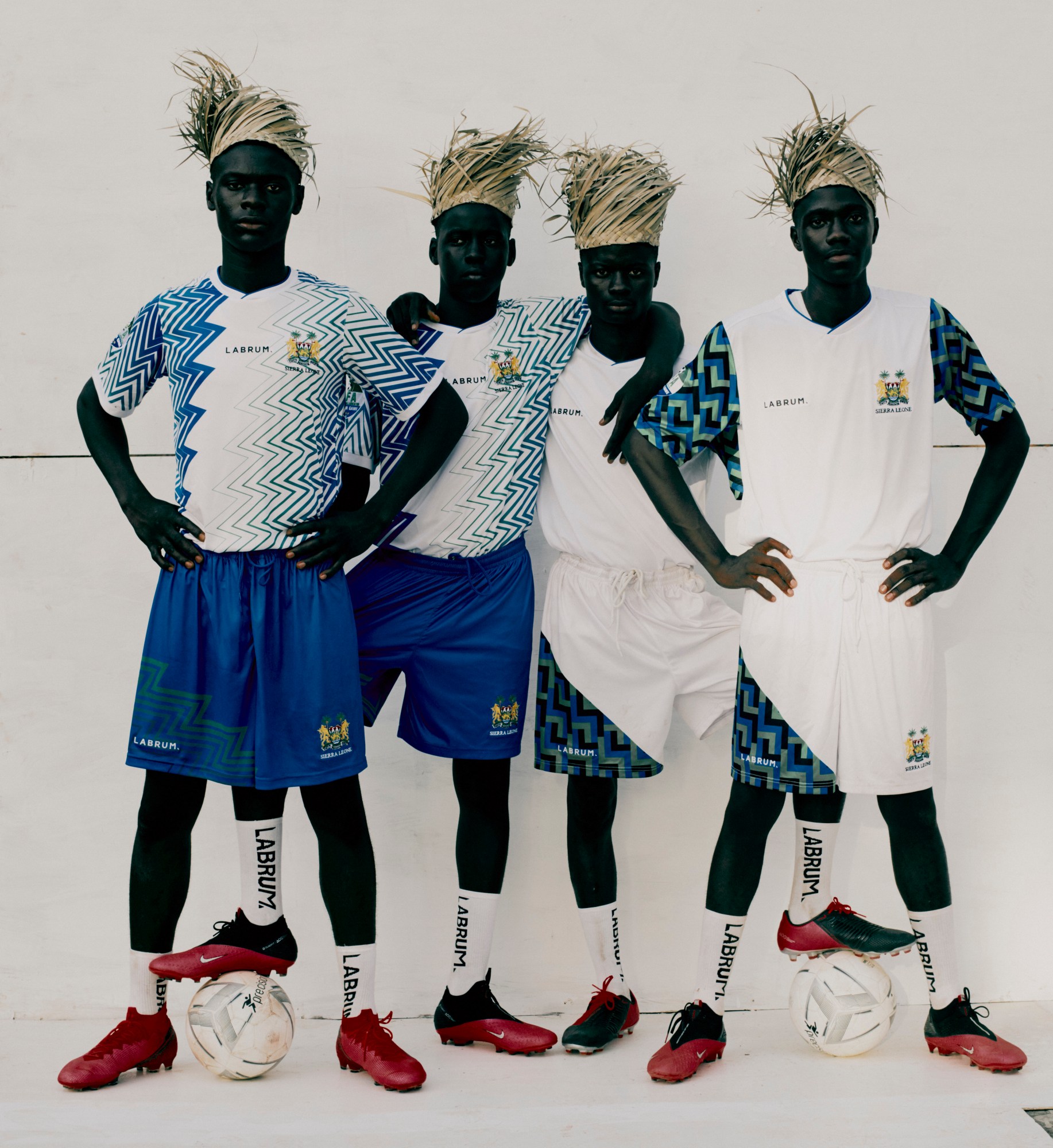By now, we’re all bitterly aware that any public event we were looking forward to at the beginning of this year is well off the cards. Among those that the world was perhaps most looking forward to was the Olympics, originally set to kick off in Tokyo late next month. Held every four years, it’s one of the few events that are able to convince even the most committed couch potato of the warm, community-rallying potential of sport — even if it’s only about watching it, rather than actually taking part.
More than the spectacle of the 100 metre final, or the ‘sport’ where posh ladies on gussied-up horses prance around, what we were most looking forward to were the looks. Indeed, this year, the opening ceremony and its parade of très chic athleticwear was set to be a needed oasis in the fashion week desert that stretches from late June to September, when all French people disappear who-knows-where.
One of the most striking kits that would have debuted at Tokyo’s National Stadium is Sierra Leone’s, whose graphic uniforms in the country’s blue-white-green tricolour bespeak a design sensibility beyond what you might typically think to throw on for a few laps around the park. That’s because it’s the result of a collaboration between National Sports Authority Sierra Leone [NSASL] and Labrum, the London-based label headed up by Foday Dumbuya, who originally hails from the West African nation.
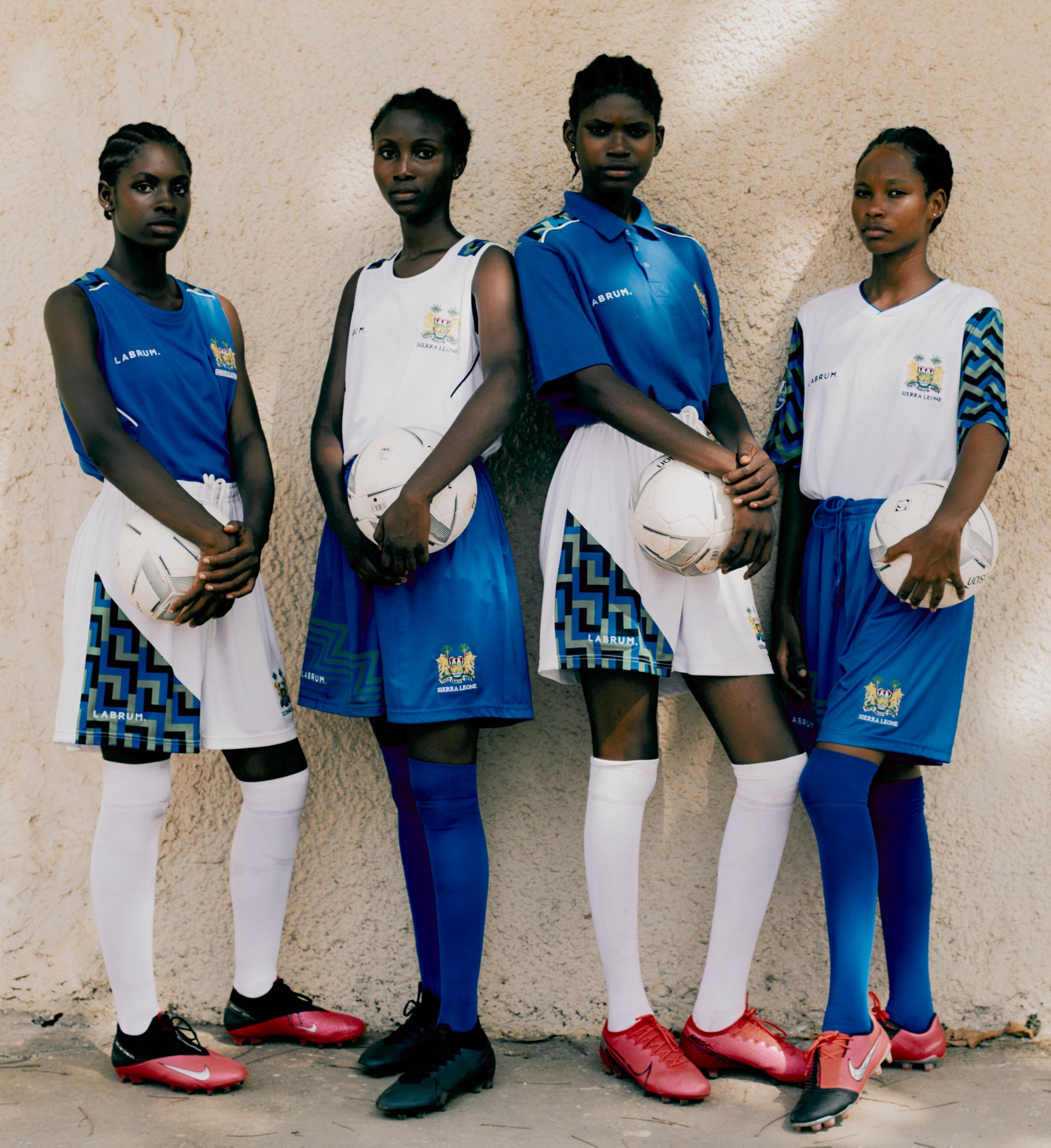
His relationship to the country’s sporting community first began a couple of years ago, on a trip back to Sierra Leone after an absence of 20 years. While there, he made the casual decision to run a local marathon, alongside a group of boys living in Freetown, the capital, who ran barefoot. “I wanted to figure out whether it was by choice or because they didn’t have access to equipment,” Foday explains. “I realised that they operated as a small unit, that they inspired each other to keep off the streets, and challenged each other to race instead.” To him, it was a poignant example of autonomous youth empowerment, a virtue that Labrum has long held dear.
“I took away their contact details and told them to come to see me in Freetown the next day so I could have a proper conversation with them about why they do what they do,” he continues. “About 15 of them came down, and I talked to each of them, hearing about why they’ve left school, and the things they were missing. Straight away, I asked myself how I could help these guys.”
The answer was to be found back in London, where the designer was working for Nike at the time. He donated the funds and necessary running equipment to allow for the establishment of Labrum Athletic, a running club that has since incubated some of the country’s foremost talent. When some of its members qualified to join Sierra Leone’s delegation at the 2020 Olympic Games, Foday was swiftly reached out to by the country’s Sports Minister, asking him to design the kit worn by all of its national teams at the event.
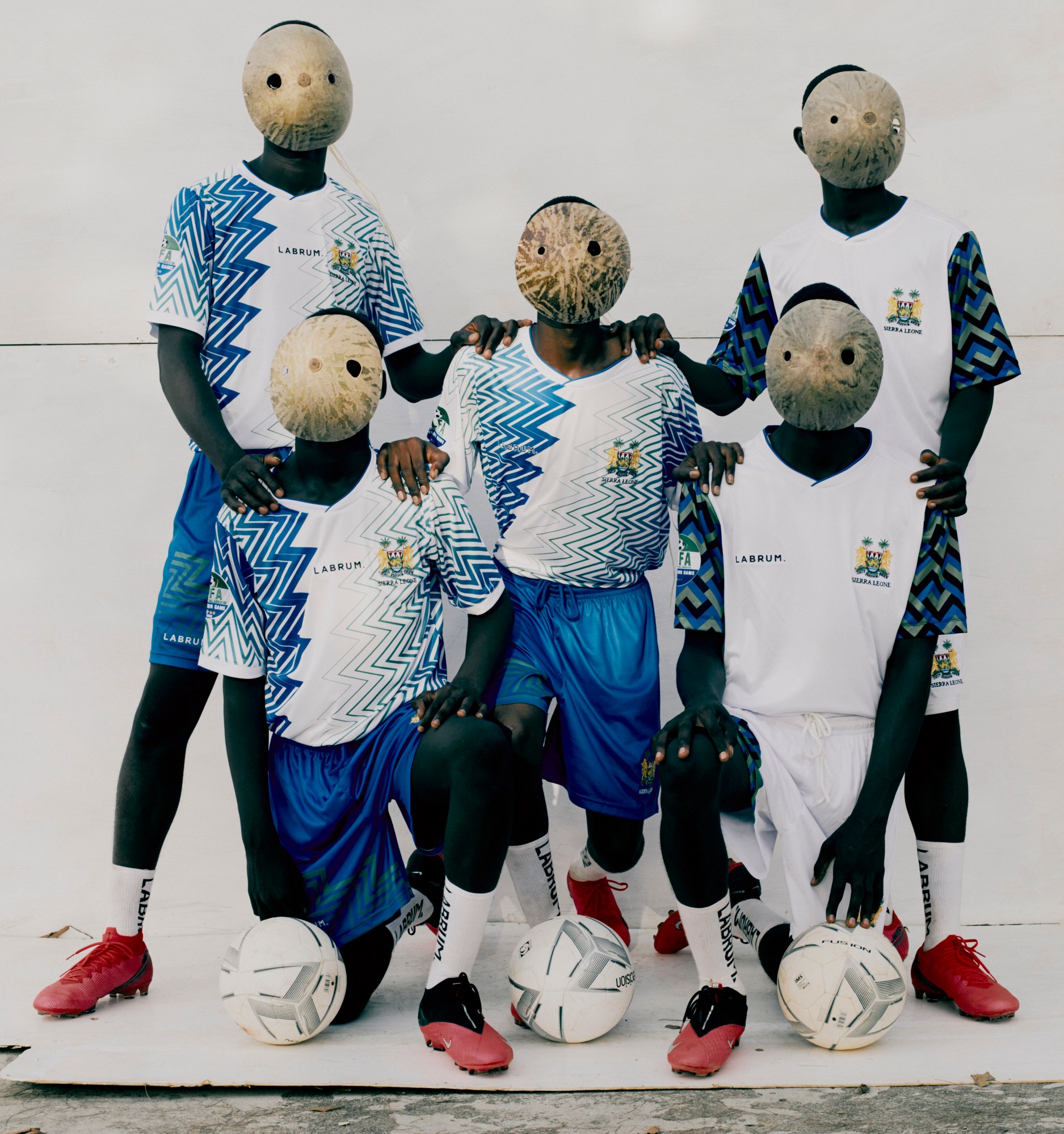
In two striking prints in the national colours — one an interlocking tapestry of the letters ‘L’ (for Labrum) and ‘S ‘(for Sierra Leone), the other a series of 16 concentric zigzags — the kit is a heartfelt ode to community and the potential that sport has to bring a nation together.
“It’s inspired by the 16 different tribes of Sierra Leone,” which, as Foday explains, do not share a particularly rosy history. “One thing I’ve realised about Sierra Leone is its tribalism. People often don’t support people who aren’t part of their tribe.” It’s a tragic tale that you’ll find written into the histories of colonised nations across the African continent — one of ethnically, culturally and linguistically distinct groups made to cohabit within borders arbitrarily drawn by colonial oppressors. In too many cases, Sierra Leone’s among them, the sudden departure of colonial governments with no methodical handover of power resulted in domestic land grabs of power and large-scale mortal conflict.
For Foday, this kit is a statement of unity, a call to all Sierra Leoneans to neglect tribal allyships and “bring everyone together as one nation. It doesn’t matter if you’re from Freetown or from other provinces, all of us are represented as one unit.” He’s also eager to highlight the country’s radical transformation since the 2002 end of the civil war, which has dominated Western preconceptions of the country, as well as the open-hearted, raw beauty that it has been home to since long before then.
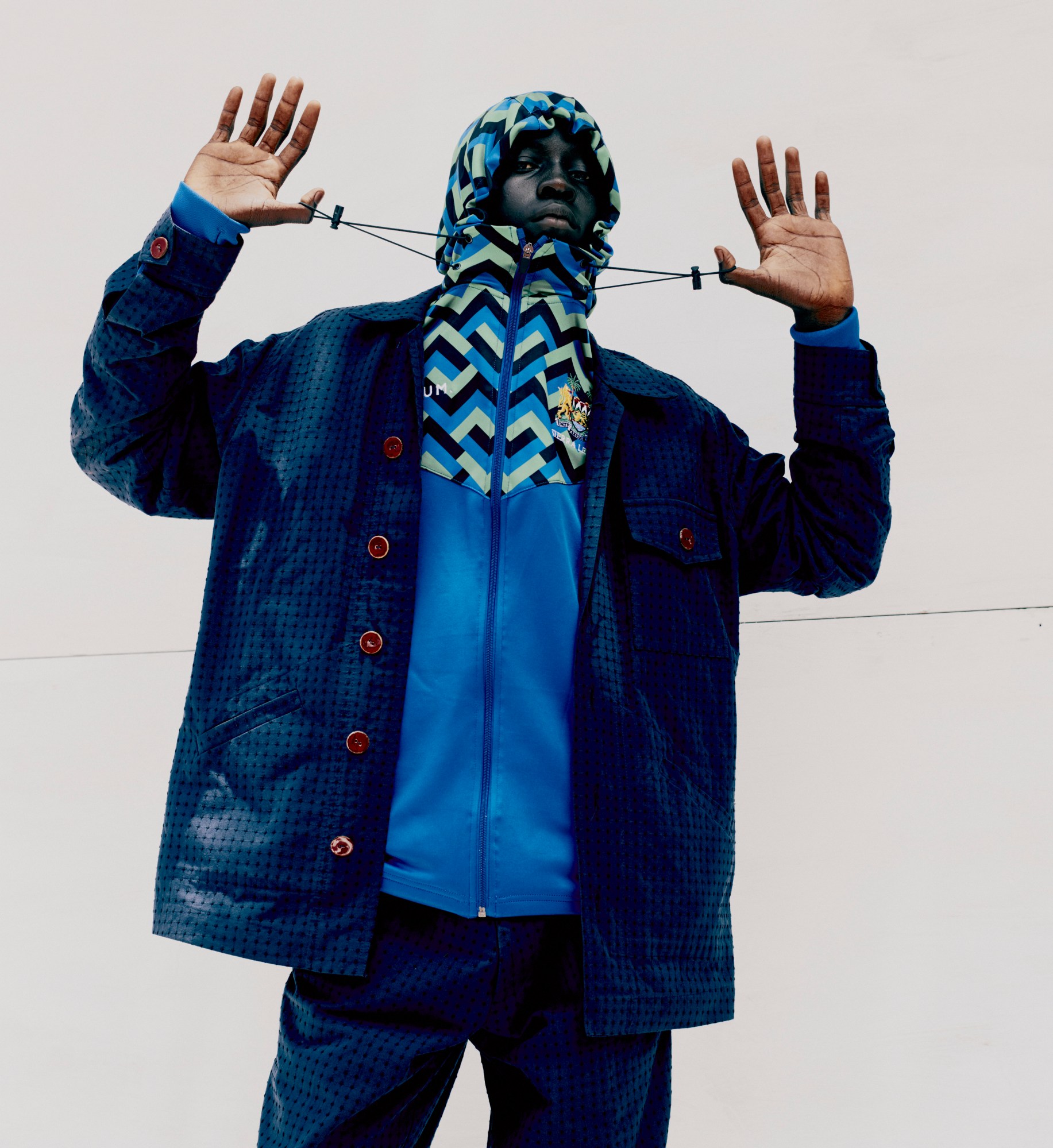
Building on their long term relationship and recent London Fashion Week partnership, Converse supported the project by providing creative funding for the Labrum team to head to Sierra Leone to work on wan neshɔn (IPA for ‘One Nation’), a film directed by Harry Deadman, and creative directed by Foday and Julian Knox. In it, talent scouted from local secondary schools dribble, kick and run through construction sites that give out onto sun-drenched views of Freetown’s skyline and bay, in aged colonial interiors, on dusty streets and golden beaches. “We wanted to portray Sierra Leone in the most positive way, and to also show people how beautiful the nation and its people are,” Foday says. Above all, it was about harnessing the electric energy that pulses through Freetown’s streets, a feature only accentuated by the live-action animations that pop up throughout the film. “It was about showcasing the vibrancy of Sierra Leone, saying that it’s not the place you’ve read about in a blog by someone who visited the country and decided to solely focus on its more notorious aspects,” he says.
While in the Sierra Leonean capital, he also teamed up with fellow countryman and i-D Senior Editor-at-Large Ib Kamara, who was in town with photographer Rafael Pavarotti to shoot their spellbinding story for our latest issue. The resulting images see the stylist bringing his inimitable hand-crafted touch to the kit — calabash masks and raffia headpieces abound. “I’ve been friends with Ib for a while now, and I’ve always been inspired by the way he pushes narratives and creates things that have never been done before,” says Foday, “he really creates magic out of nothing, and his energy, his diversity and his passion to this project.”
While the kit may not be debuting in Tokyo until 2021, Labrum and NSASL have decided to press ahead with releasing it to the public now, as originally planned. While we can’t promise that wearing it will bring you anywhere close to the impressive sporting standards of Sierra Leone’s Olympians, it’s the perfect gear for anyone hoping to run in their footsteps — or for cheering them on from the sofa, as you like.
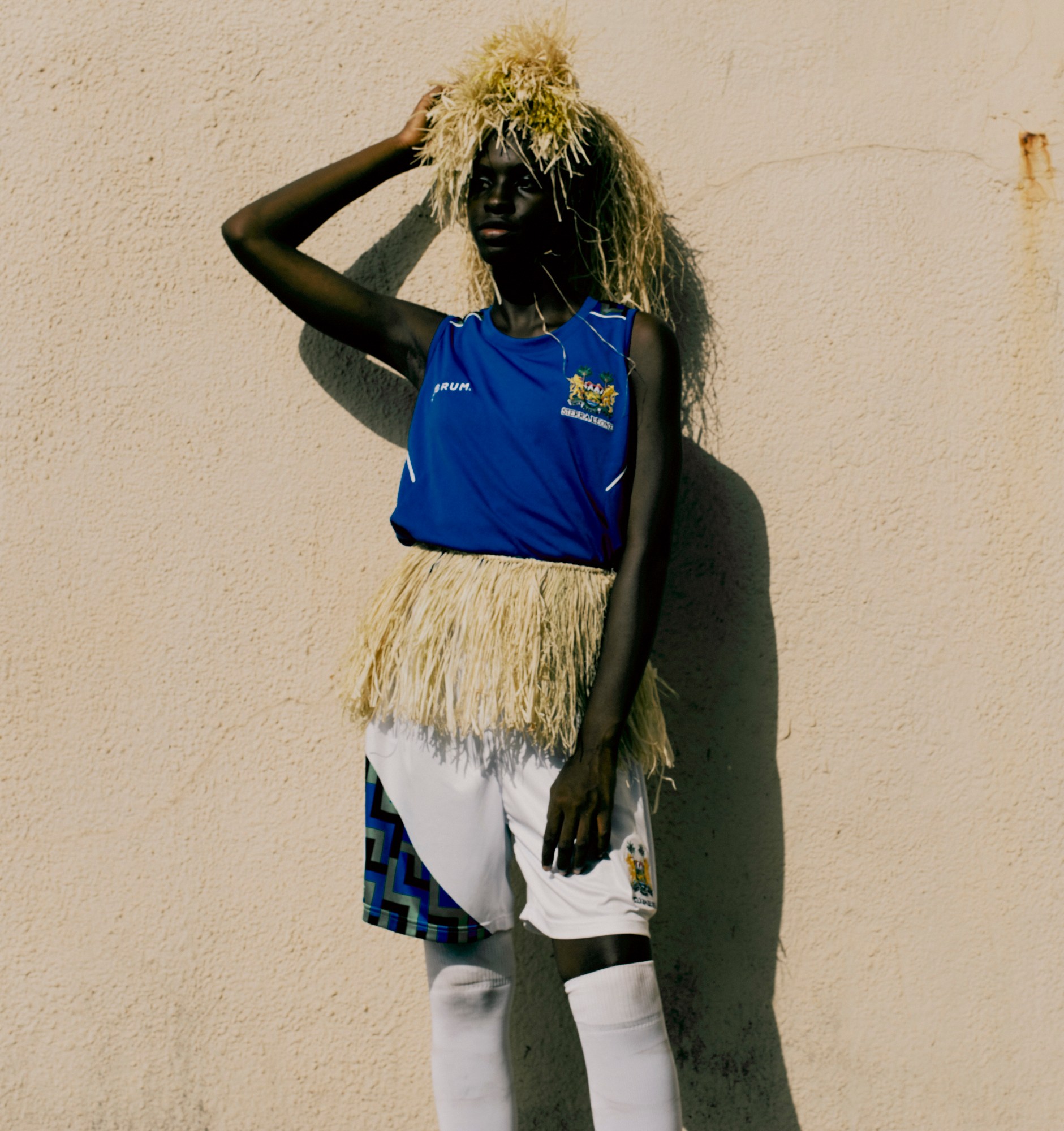
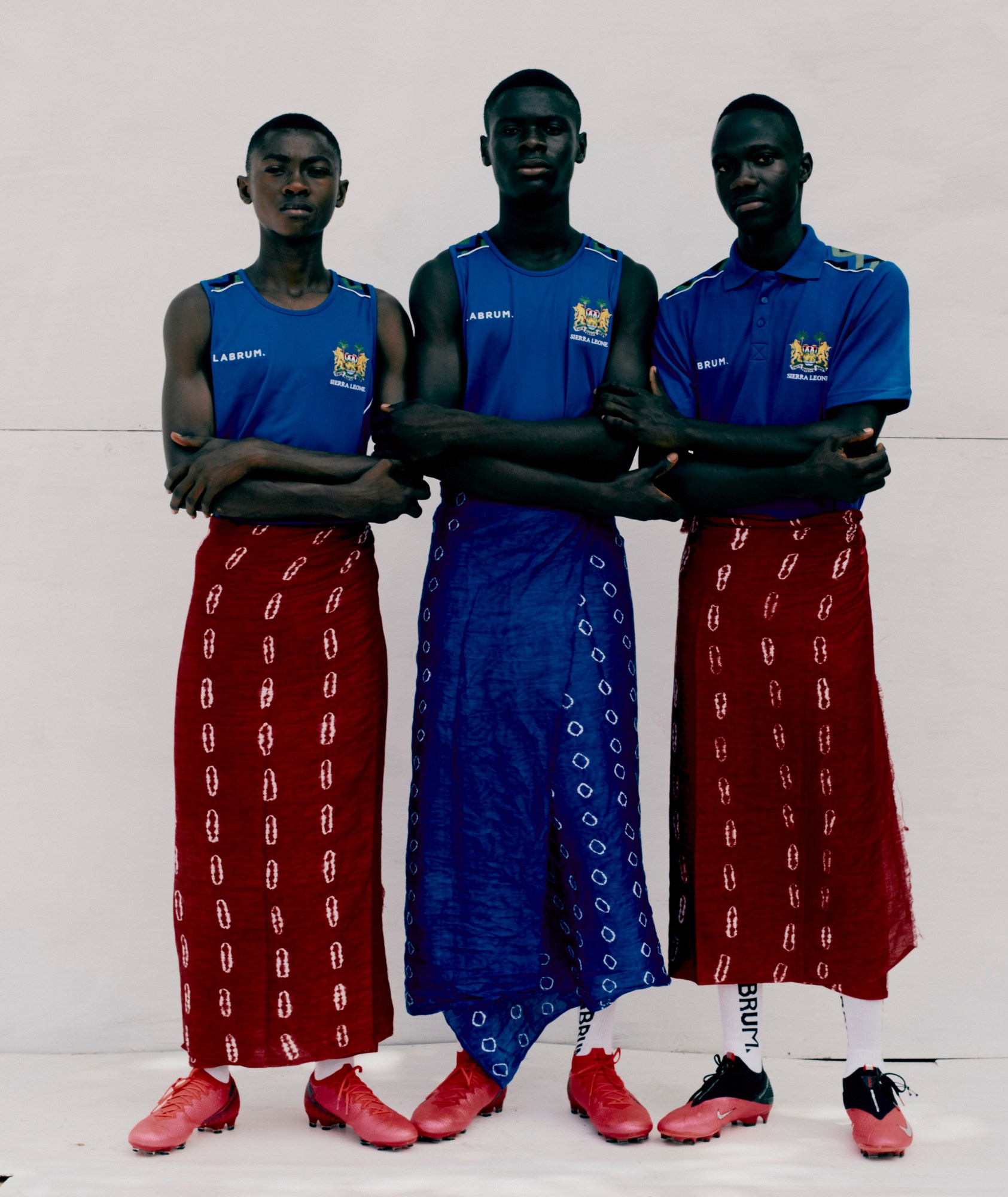
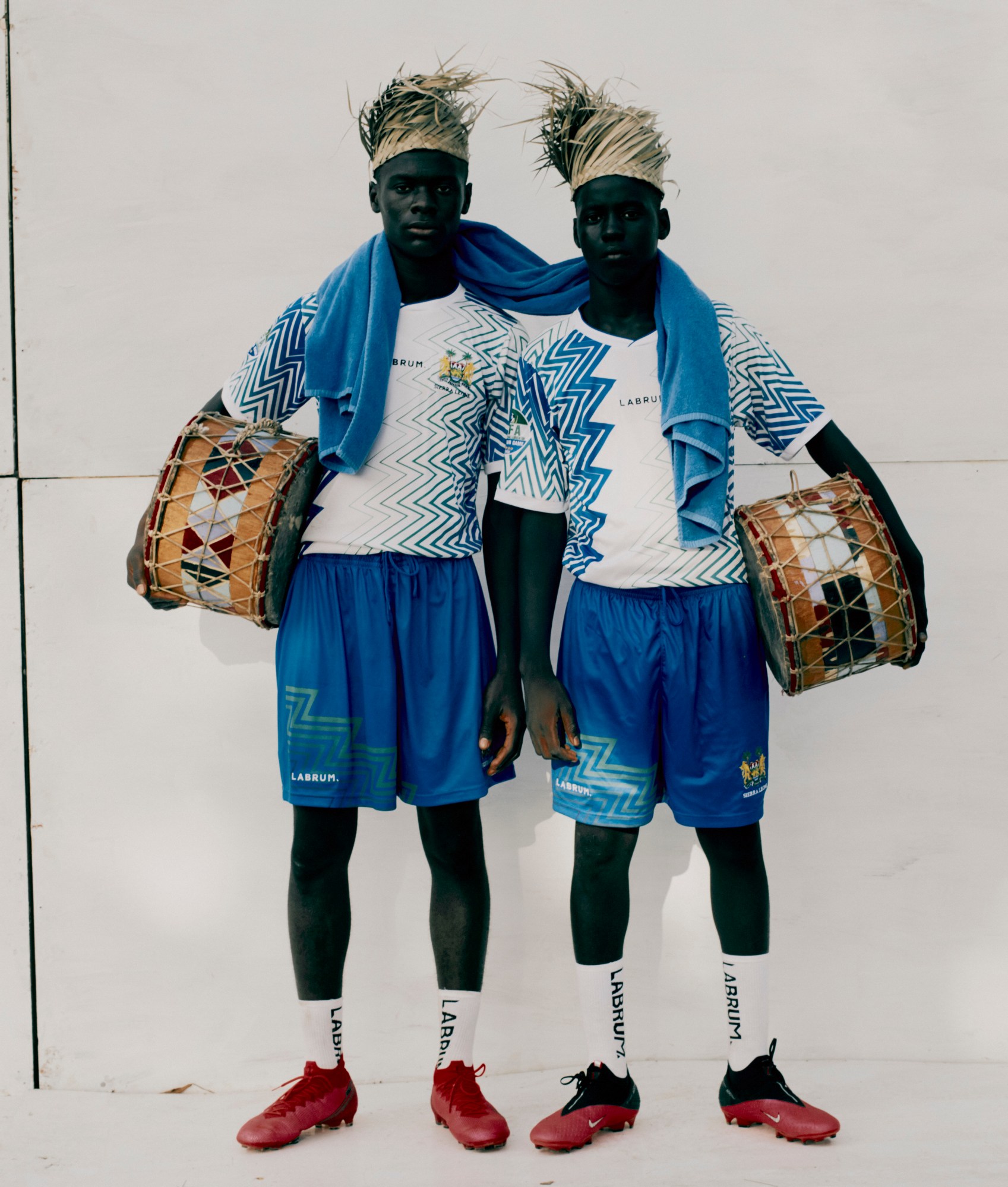
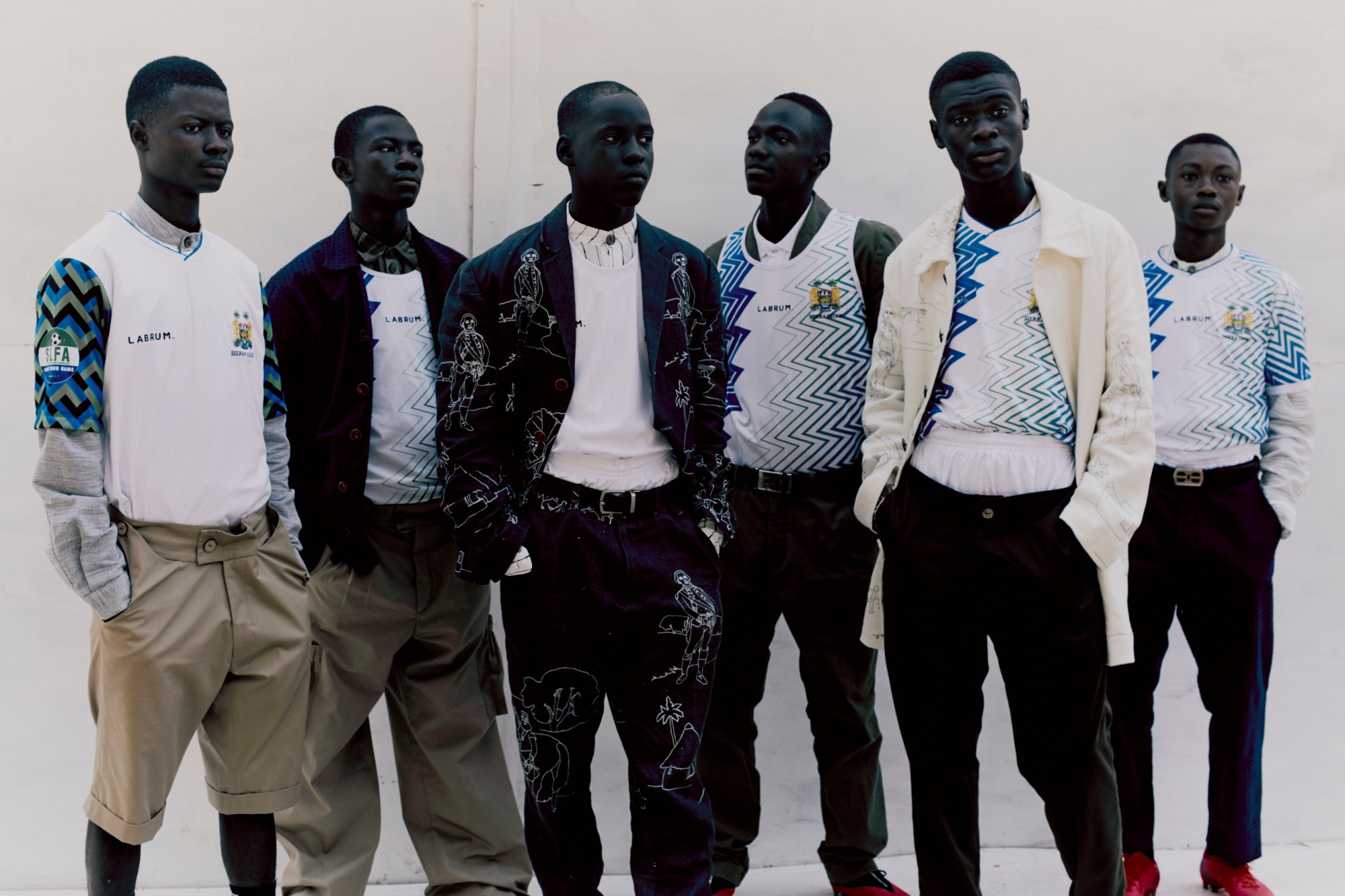
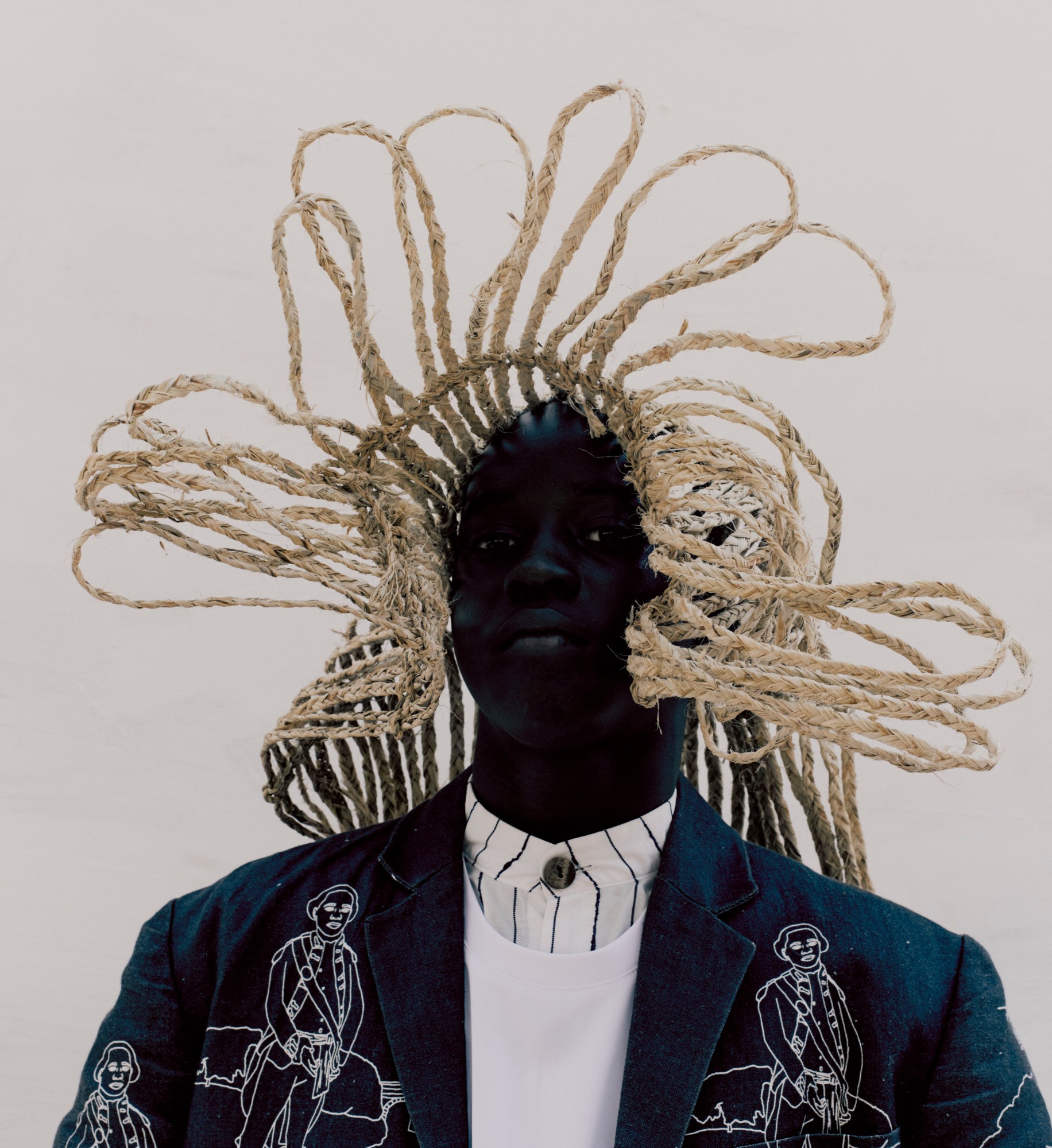
Labrum x Sierra Leone Olympic is available to purchase on labrumlondon.com from 25th June.
Credits
Film Credits
Photo Credits
Models
